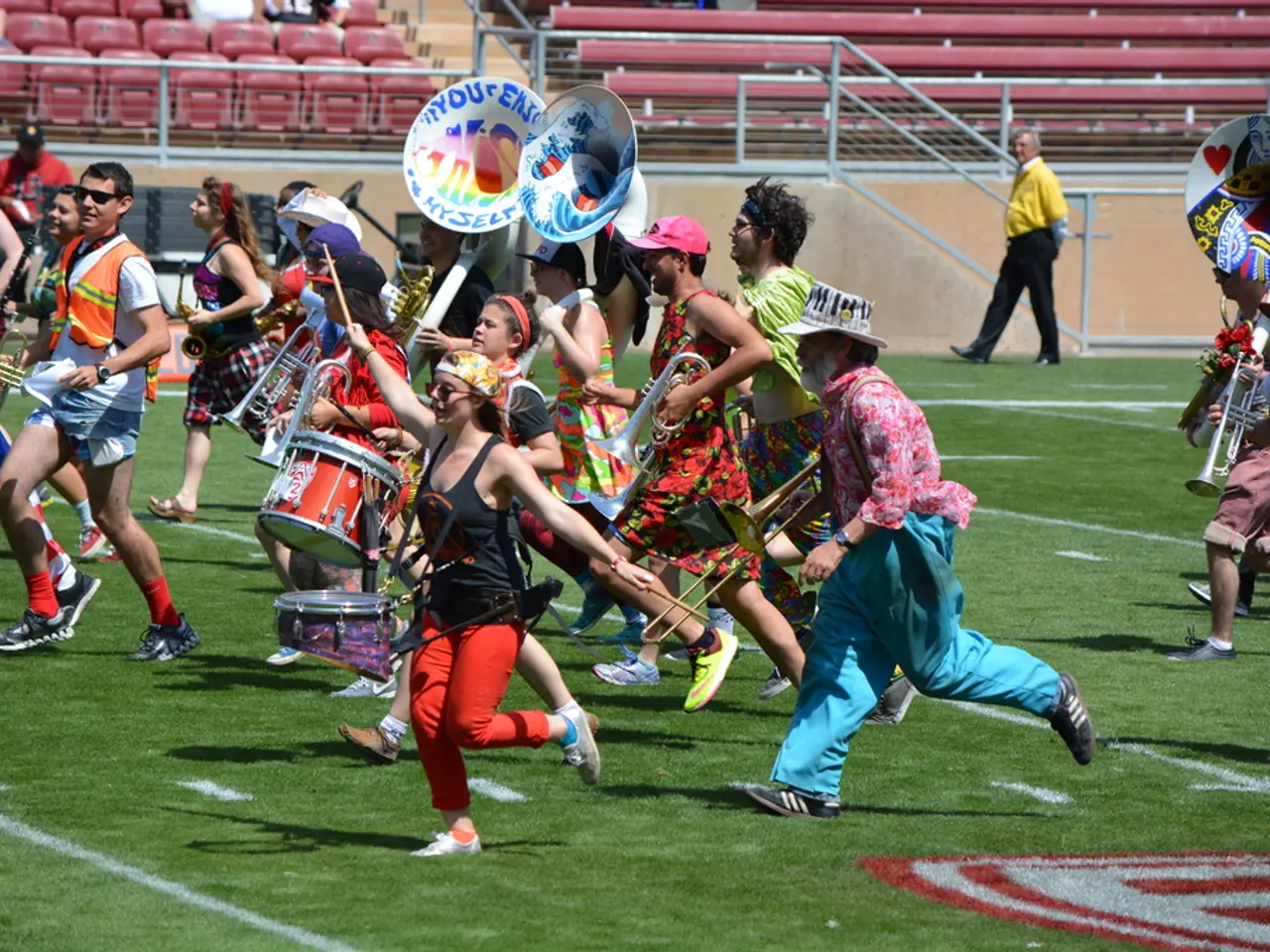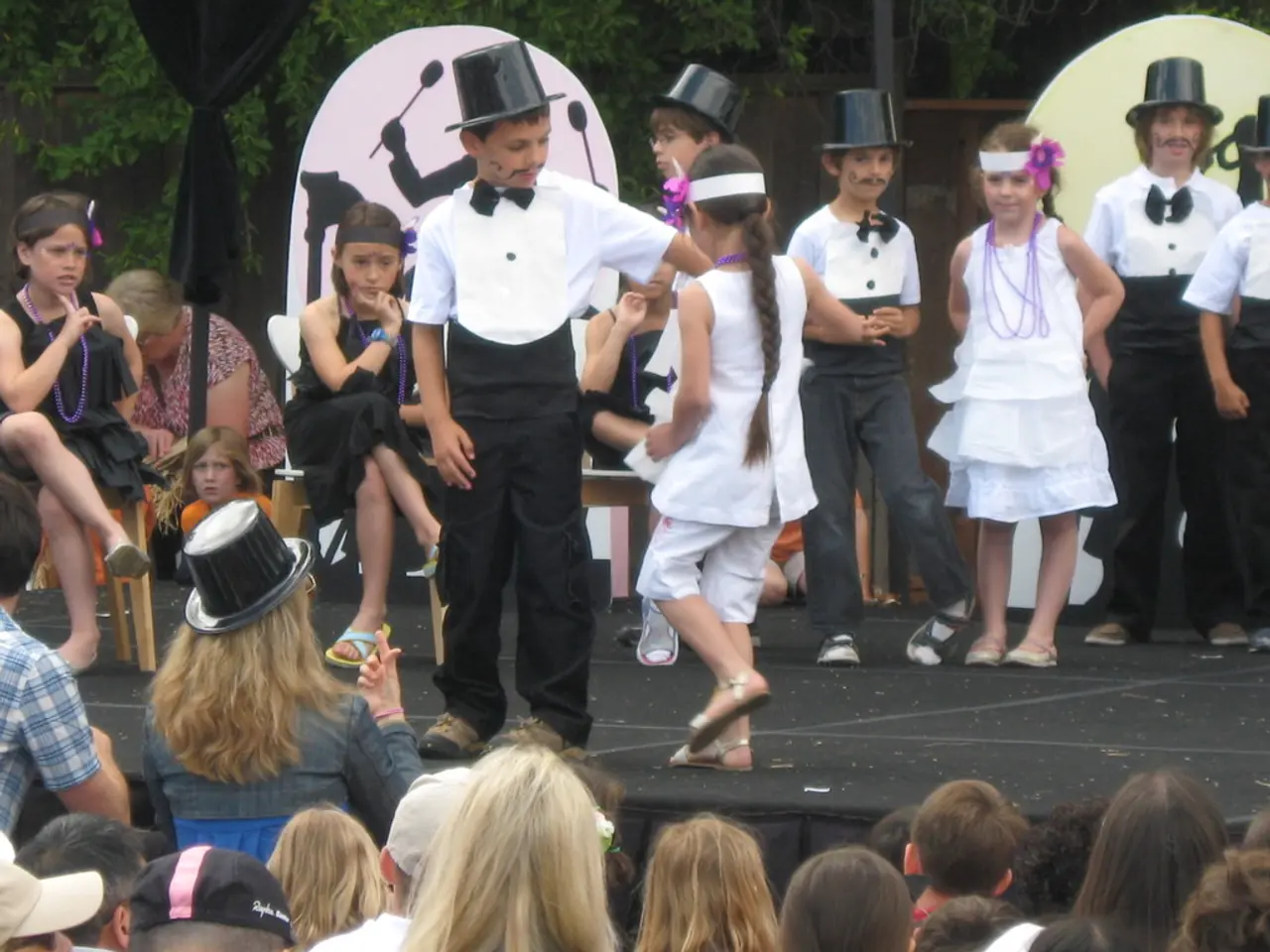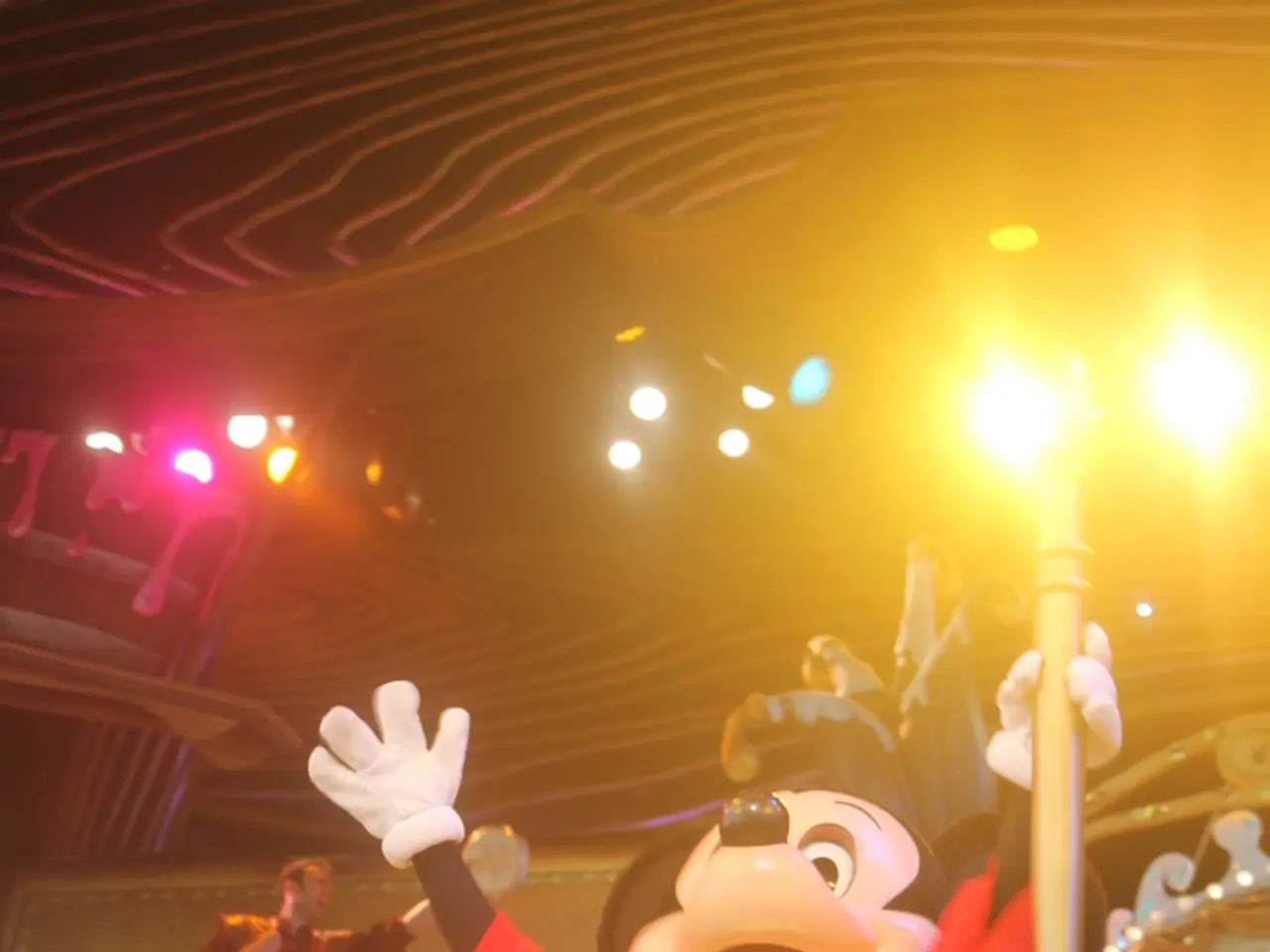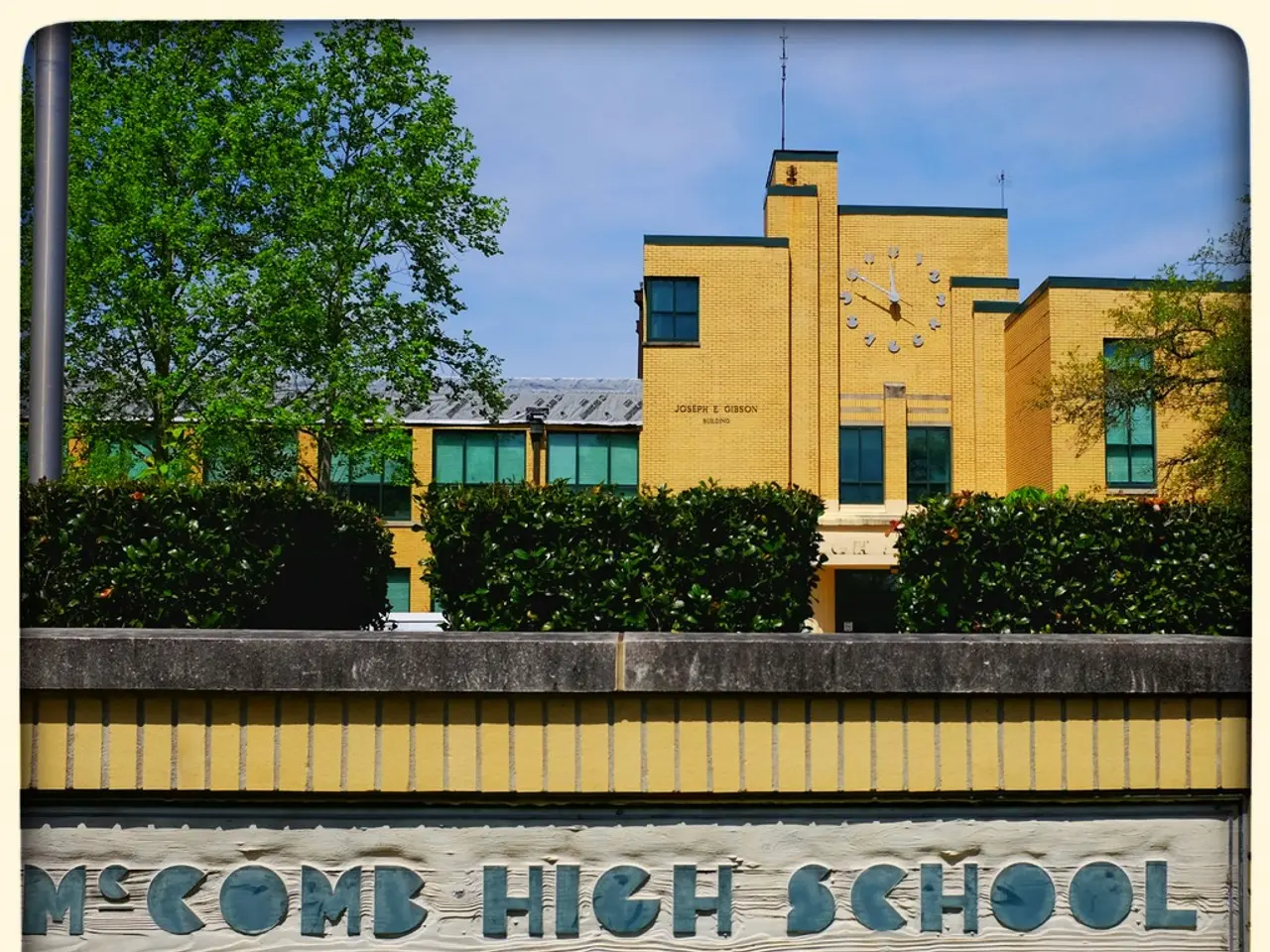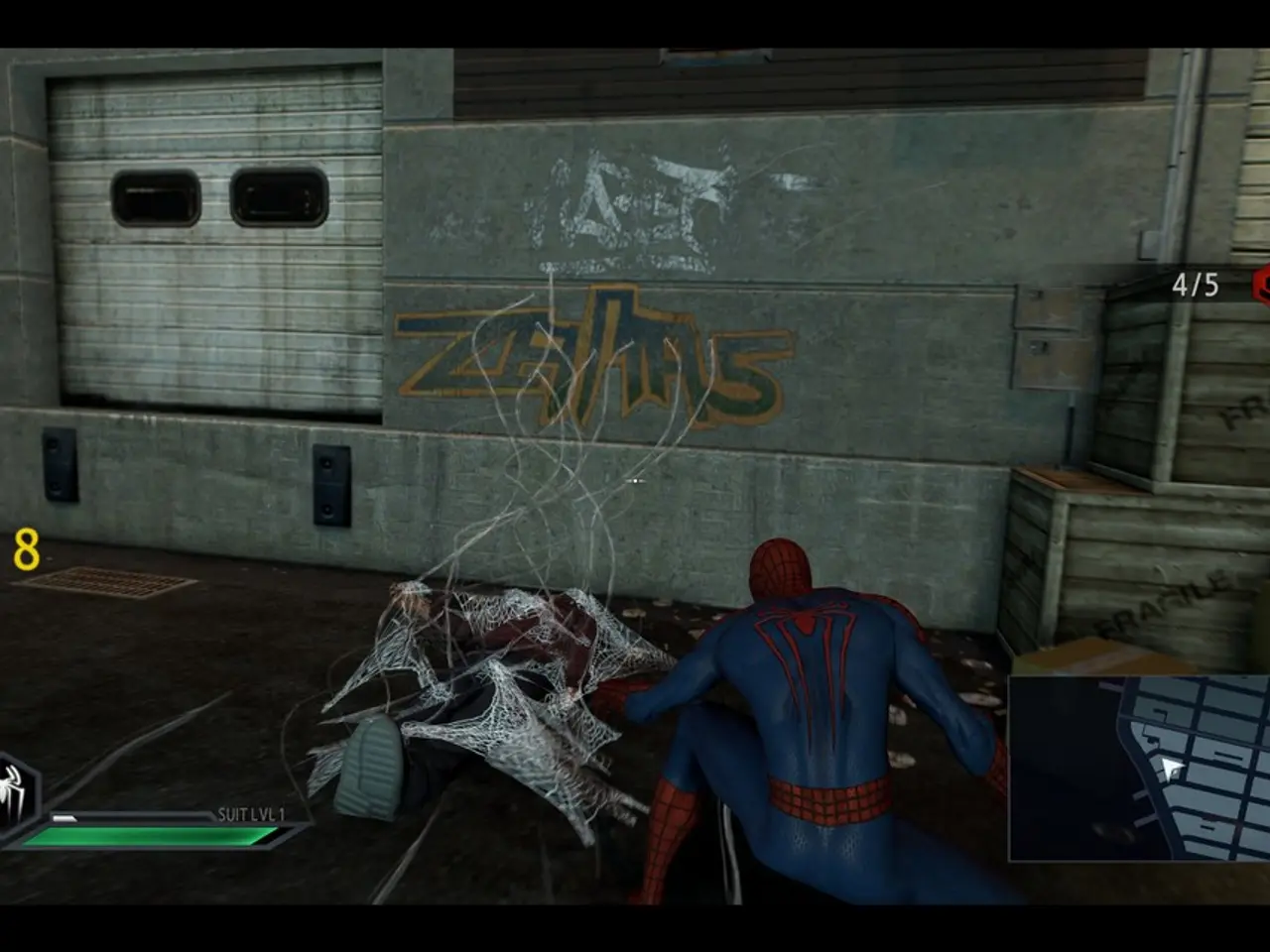Melodies of Xinjiang: Ranging from traditional musical instruments to Muqam concerts
In the heart of Xinjiang, a region steeped in history and rich cultural diversity, lies the Ethnic Musical Instrument Village in Shufu County. This handmade instrument production center, with over 150 years of history, is a vibrant center for preserving, producing, and transmitting traditional Uyghur musical instruments and craft skills.
The village is recognized as a national intangible cultural heritage site and was designated in 2012 as one of the first productive protection demonstration bases, emphasizing its role in safeguarding intangible cultural traditions. Over 68% of villagers engage in handcrafting more than 50 different traditional instrument types, such as dutar, chewawa, and sattar, using authentic materials like mulberry wood and cow bone.
The village sustains Uyghur musical heritage through a master-apprentice system, training over 150 young artisans to continue this craft, thus ensuring that the skills and knowledge are passed on to future generations. Imin Khushur, an 80-year-old artisan in the village, has been making instruments since childhood and continues his work due to a deep love for music.
The Muqam Art Troupe, based in the capital, is a renowned performing group that specializes in traditional Uyghur music and dance. Their performances are captivating, featuring women in elegant, brightly colored dresses made of silk or velvet, and men in traditional outfits made of silk or cotton. The Muqam Art Troupe's upcoming show, The Soul of the Silk Road, blends traditional Muqam music with modern elements like piano and electronic instruments, creating a unique, contemporary fusion.
The journey from Shufu to Urumqi offers a rare opportunity to witness the full life cycle of a cultural tradition, from raw material to refined performance. In Urumqi, the Xinjiang Regional Museum houses over 40,000 cultural relics, including musical instruments, traditional costumes, prehistoric mummies, Silk Road maps, and more. Together, the Ethnic Musical Instrument Village, Xinjiang Regional Museum, and Muqam Art Troupe provide a comprehensive sensory experience of the region's musical heritage.
Alongside Muqam, the Uyghur musical landscape includes epic tales, folk songs, and spiritual genres, expressing themes of love and life's hardships. Each Muqam suite comprises three main parts: naghma (melody), dastan (epic narrative), and meshrep (folk dance and celebration). The Muqam Art Troupe's performances are deeply emotional experiences, bridging past and present, and rooting personal identity in collective memory.
The Muqam Art Troupe's The Soul of the Silk Road show has already aired on local TV and is preparing for international shows next year. The sounds of Xinjiang continue not only in recordings or memory but in the living hands and voices that still carry them forward. The Ethnic Musical Instrument Village in Shufu County is a cornerstone for the survival and flourishing of Uyghur musical art, embodying centuries of cultural values and craftsmanship through its hand-made instruments and training of new generations, thus reinforcing Uyghur cultural identity and heritage in Xinjiang.
- The Ethnic Musical Instrument Village, a national intangible cultural heritage site, is a local tourism attraction in Shufu County, Xinjiang.
- Tourists can reserve a tour to this village and learn about the traditional production of Uyghur musical instruments from local artisans.
- A nomad at heart, one can embark on a cultural journey through the village, gaining insights into the Uyghur musical ecosystem and its various genres like epic tales, folk songs, and spiritual music.
- The Muqam Art Troupe, based in Urumqi, offers entertaining musical performances that are deep-rooted in Uyghur cultural traditions and showcase the region's rich musical heritage.
- In the heart of the village, the sounds of traditional instruments such as dutar, chewawa, and sattar resonate, carrying the echoes of centuries past.
- Eco-tourists will appreciate the commitment to preserving cultural traditions and promoting sustainable tourism in the Ethnic Musical Instrument Village, making it a key destination for those who seek authentic and immersive experiences in Xinjiang.
